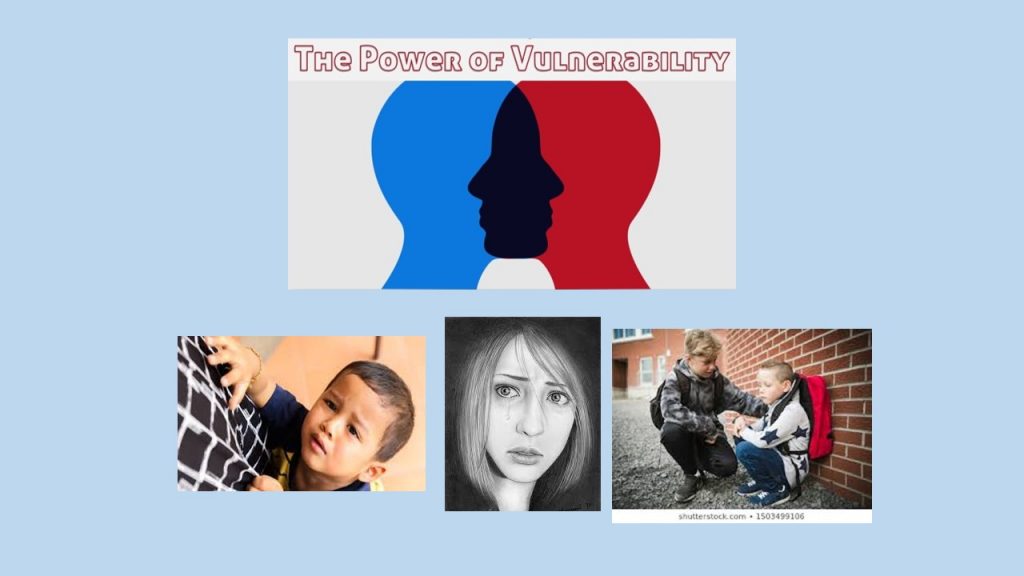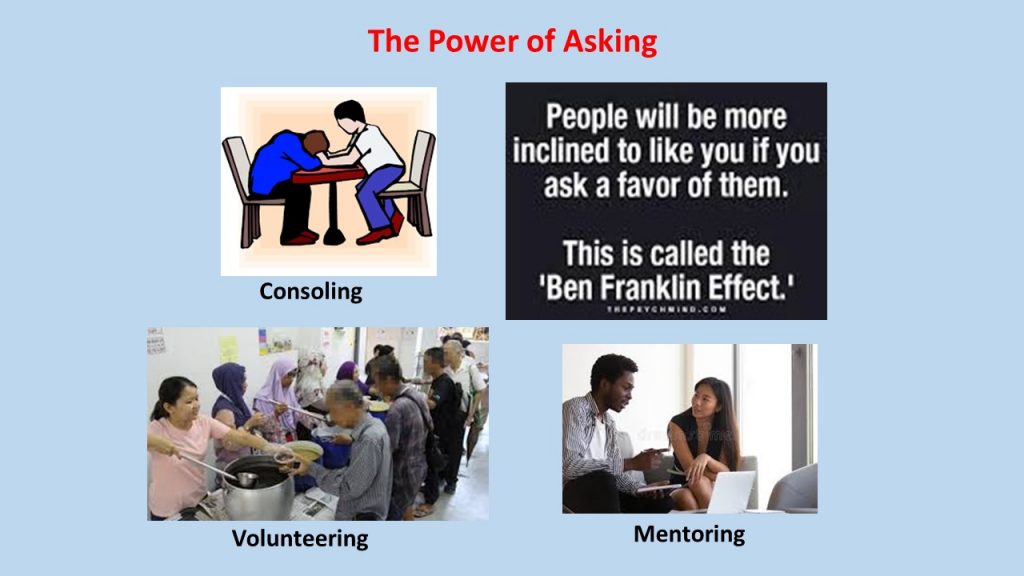
The Power of Vulnerability and Asking
– Musings of Dr. Jamie C. Hsu, 11.1.2020
Have you noticed something? After we help, advice, or mentor someone, we tend to like and want to help that person even more. This is called the “Ben Franklin Effect” and is based on the psychological concept of “cognitive dissonance.” I don’t pretend to fully understand it and won’t try to explain it here, but there are numerous observations we can make to substantiate this effect of “People tend to like you if you have asked a favor of them.”
In Dale Carnegie’s bestselling book ‘How to Win Friends and Influence People ‘, Carnegie interprets the request for a favor as “a subtle but effective form of flattery.” That request makes the giver feel good about themselves and also creates a better perception of the receiver.
This might explain why companies are constantly asking us to help improve their products and services, or why politicians ask for our opinions to shape their policies. These requests make us feel important and capable, and in so doing, we grow to like them more.
On the other side of the coin, we should not be afraid to show our vulnerability and we should be willing to ask for help. It is a powerful way to make connections with others. It has been said that relationships and human bonds are formed and strengthened by numerous “favors and returned favors” and “arguments and understandings.”
In our modern society, the joy of giving has propelled many volunteers to console people, to mentor youth, and to help underprivileged people in the community. For these volunteers, the more they do, they more they want to do. But there is also power in being vulnerable, willing to ask for help, and open to receiving assistance. Human nature propels the wheel of humanity and progress in more ways than we realize.
Please be brave and authentic, show your vulnerability and ask for help when needed. You’ll be amazed at its power and the goodwill it creates.


求助的力量
-作者 許俊宸博士
-中譯 薛乃綺
你注意到了嗎?當我們提供某個人幫助、建議或指導後,會變得更願意、更想再給這個人幫助。這被稱為是”富蘭克林效應”,它基於認知失調的心理概念。我並不完全懂這個效應的来原,也不想在此說明解釋,但是我們可以透過觀察來證實這個效應:”如果你曾經得到過對方的協助,那通常表示他們是喜歡你的”。
在戴爾.卡耐基(Dale Carnegie)的暢銷書”如何贏取友誼與影響他人(How to Win Friends and Influence People)”當中,卡耐基把請求協助解釋為”一一種微妙但有效的奉承形式”。這樣的請求,讓提供協助的人,感覺自己是個好人;也讓他們對於接受者有更深的理解。
這也許可以解釋,為什麼企業不斷請消費者協助改善他們的產品與服務;為何政客請民眾提出意見來協助他們制定政策。而這些請求也讓我們感到自己的重要和能力;也因為如此,我們變得越來越喜歡這樣的感覺。
另一方面,我們不該害怕表現出自己的脆弱性,願意展現出尋求協助的態度。這是與他人建立聯繫的有效方法。有人說,人跟人際關係之間是由許多的”恩惠與回饋恩惠”、”爭論與理解”所鏈結,並且不斷累積強化。
在現在這個現代社會裡,捐贈的喜悅促使許多志願者去安慰人們、指導年輕人,並幫助社區中的弱勢群體。對於這些志願者,做得越多、就會越想做。但也有能力變得脆弱、願意尋求協助、並且願意接受協助的。人性会以比我們意識到更多的方式,推動著人類的文明与進步。
請勇敢做自己,不怕展現您的脆弱、並在需要幫助的時候尋求幫助。您會驚訝它的力量、以及所產生的善意。


